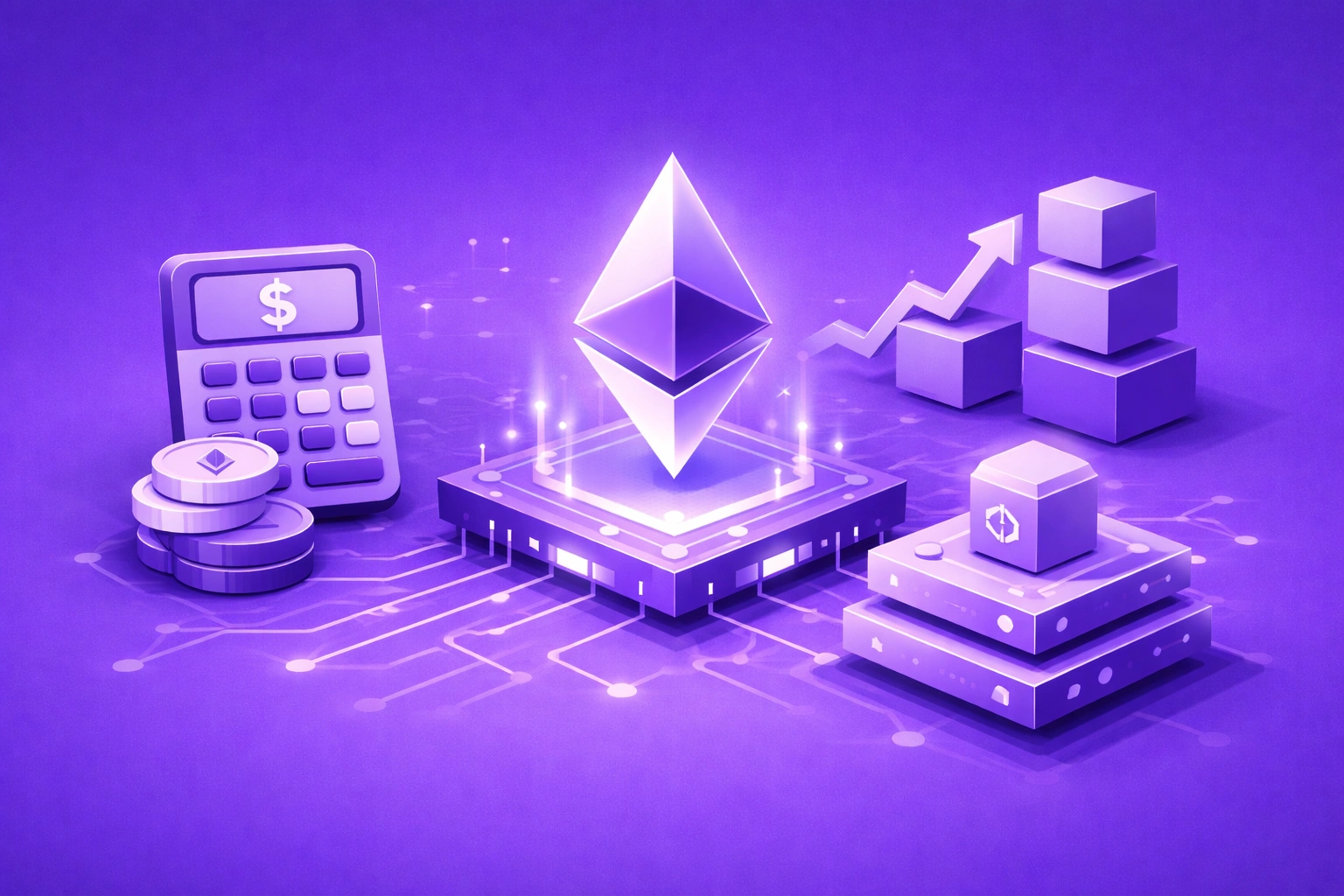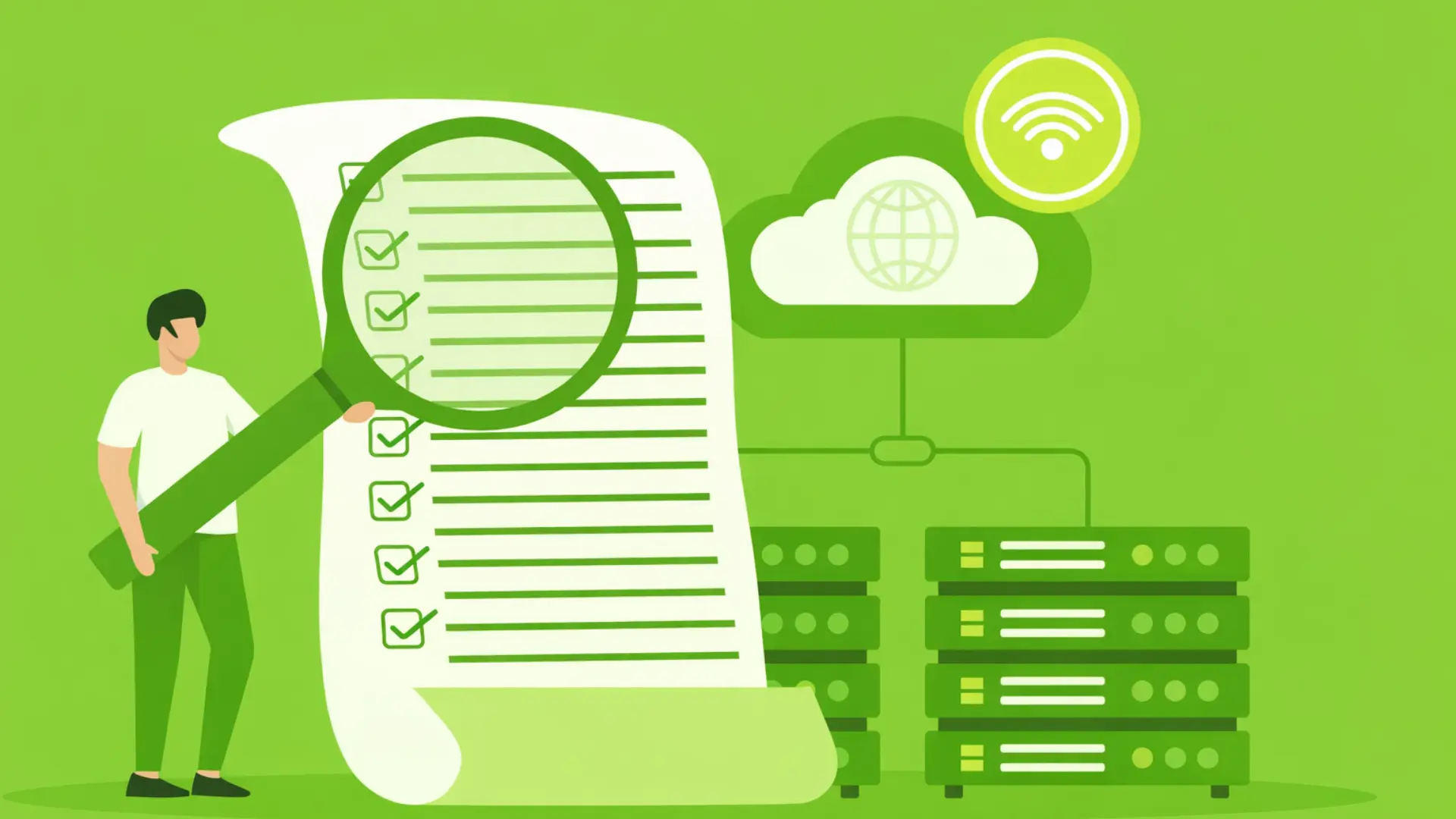Key Takeaways
- ✓ The role of smart contracts in digital transformation centers on automating business processes, eliminating manual intervention, and creating trustless systems that operate 24/7 with perfect accuracy.
- ✓ Smart contracts reduce operational costs by 40-70% through automation, eliminate human errors achieving 98% accuracy, and accelerate transaction processing by 10-100x compared to traditional systems.
- ✓ These programmable agreements enhance trust and transparency by recording every action immutably on blockchain, enabling all parties to verify operations independently without intermediaries.
- ✓ The role of smart contracts extends across secure digital transactions, automated data management, and decentralized system architectures that fundamentally reshape how businesses operate.
- ✓ Industries from finance to healthcare are leveraging smart contracts to achieve digital transformation goals, with proven implementations delivering measurable ROI and competitive advantages.
- ✓ While challenges exist around integration, scalability, and regulatory compliance, established solutions and best practices enable successful smart contract adoption for digital transformation.
- ✓ Businesses can start implementing smart contracts through phased approaches, beginning with pilot projects in high-value use cases before scaling to enterprise-wide deployment.
- ✓ The future role of smart contracts will expand as technology matures, with intelligent, self-optimizing agreements becoming standard infrastructure for digitally transformed businesses.
Why Digital Transformation Needs Smart Contracts
Digital transformation represents fundamental changes in how organizations operate, deliver value, and compete in modern markets. At the heart of this transformation lies the need for systems that are automated, transparent, secure, and capable of operating without constant human oversight. This is precisely where the role of smart contracts becomes critical, providing the technological foundation for truly digital-first business models.
Traditional digital systems still rely heavily on human intermediaries, manual approvals, and centralized control points that create bottlenecks and introduce risks. Smart contracts eliminate these limitations by encoding business logic directly into self-executing code that operates automatically when conditions are met. This shift from human-dependent to code-dependent operations represents the essence of digital transformation – moving from digitized processes to truly digital processes.
The role of smart contracts in enabling digital transformation extends beyond simple automation. They create trustless environments where parties can transact without knowing or trusting each other, relying instead on verified code and cryptographic guarantees. This fundamental trust shift opens possibilities for business models and partnerships impossible with traditional digital systems, accelerating transformation across entire industries and value chains.
Core Requirements of Digital Transformation
Complete Automation
Processes must run automatically without manual intervention, operating 24/7 with consistent accuracy regardless of volume or complexity.
Transparency & Trust
All stakeholders need visibility into operations with verifiable records that build trust without requiring central authorities or intermediaries.
Security & Reliability
Systems must protect sensitive data, prevent unauthorized access, and maintain perfect reliability under all conditions and attack scenarios.
Scalability & Speed
Digital transformation demands systems that scale effortlessly and process transactions at speeds impossible for manual or legacy digital systems.
Expert Insight from Our 8+ Years:
We have guided dozens of organizations through digital transformation since 2016, and the role of smart contracts has evolved from experimental to essential. Early adopters used smart contracts for simple token transfers. Today’s implementations automate entire business processes end-to-end. Companies that integrate smart contracts into their digital transformation strategy achieve results 3-5x faster than those using only traditional digital tools. The technology has matured from novelty to necessity.
How Smart Contracts Automate Business Processes
The role of smart contracts in automating business processes fundamentally changes how work gets done. Unlike traditional automation that still requires human oversight and intervention, smart contracts execute automatically based on predefined conditions encoded in their logic. This creates truly autonomous processes that operate continuously without manual triggers, approvals, or monitoring.
Consider procurement workflows that traditionally involve purchase requisitions, approval chains, vendor selection, invoice processing, and payment authorization. Each step requires human action, creating delays and potential errors. According to 101 blockchains Blogs, Smart contracts automate this entirely – they verify inventory levels trigger purchases automatically when stock falls below thresholds, select vendors based on predefined criteria, validate deliveries against orders, and release payments instantly upon confirmation. The entire cycle completes without human intervention.
This automation extends across virtually every business function. HR processes like payroll, benefits administration, and compliance tracking become self-executing. Financial operations including invoice processing, expense reimbursement, and audit trails operate automatically. Supply chain management, customer service, and legal compliance all benefit from the role of smart contracts in eliminating manual work while improving speed, accuracy, and consistency.
| Business Process | Traditional Approach | Smart Contract Automation | Improvement |
|---|---|---|---|
| Invoice Processing | 7-14 days, manual verification | Instant, auto-validated | 95% faster, zero errors |
| Contract Execution | Multiple signatures, weeks to execute | Self-executing when conditions met | 10x speed, guaranteed execution |
| Compliance Monitoring | Periodic audits, reactive | Continuous, real-time enforcement | 100% compliance, proactive |
| Payroll Distribution | Bi-weekly, manual calculation | Automatic, instant payments | Real-time pay, 98% accuracy |
| Supply Chain Tracking | Manual updates, limited visibility | Auto-tracked, full transparency | End-to-end visibility, real-time |
Role of Smart Contracts in Reducing Costs and Errors
One of the most immediately measurable aspects of the role of smart contracts is dramatic cost reduction across operations. By eliminating intermediaries, automating manual processes, and removing error-prone human steps, smart contracts deliver 40-70% cost savings in typical implementations. These savings come from multiple sources including reduced labor costs, eliminated transaction fees, faster processing times, and prevention of costly mistakes.
Error reduction proves equally impressive, with smart contracts achieving 98-99% accuracy rates compared to 85-95% for manual processes. Human errors in data entry, calculation mistakes, missed deadlines, and incorrect approvals cost businesses billions annually. Smart contracts execute exactly as programmed every single time, eliminating entire categories of errors. Once deployed and verified, they perform flawlessly regardless of volume, complexity, or time pressure.
The compounding effect of reduced costs and eliminated errors creates substantial competitive advantages. Companies leveraging the role of smart contracts operate with fundamentally different economics than competitors relying on traditional processes. Lower operational costs enable aggressive pricing or higher margins. Perfect accuracy builds customer trust and eliminates expensive error remediation. Speed advantages from automation capture market share. These benefits compound over time as organizations scale smart contract usage.
Labor Cost Reduction
Automation eliminates roles focused on manual data entry, verification, reconciliation, and approval processing, reducing headcount requirements by 50-60% for automated processes.
Transaction Fee Elimination
Direct peer-to-peer execution removes intermediary fees from banks, payment processors, and service providers, saving 2-5% per transaction in typical applications.
Error Prevention Savings
Perfect execution eliminates costs from fixing mistakes, processing refunds, handling disputes, and managing customer complaints about errors, saving millions annually.
Real Cost Reduction Example:
In 2023, we implemented smart contracts for a mid-sized logistics company’s payment processing. Previously, they employed 12 people processing supplier invoices, taking 10-14 days per invoice with a 6% error rate requiring corrections. Smart contracts automated the entire workflow, reducing processing to under 4 hours with zero errors. The company eliminated 10 positions, saving $850,000 annually in labor alone, plus $400,000 from eliminated errors and faster cash flow optimization. Total ROI exceeded 400% in the first year, demonstrating the tangible role of smart contracts in cost transformation.
Improving Trust and Transparency with Smart Contracts
The role of smart contracts in building trust and transparency represents a fundamental shift in how businesses establish credibility and confidence with partners, customers, and stakeholders. Traditional systems require trusting central authorities, intermediaries, or counterparties to act honestly and execute agreements as promised. Smart contracts eliminate this trust requirement by making all operations transparent, verifiable, and automatically enforced through code.
Every action taken by a smart contract is recorded permanently on the blockchain where anyone can verify it. This immutable audit trail creates unprecedented transparency – participants can see exactly what happened, when it happened, and verify that operations followed agreed-upon rules. Disputes become rare because there is no ambiguity about what occurred. When disagreements arise, the blockchain record provides definitive proof settling conflicts immediately.
This transparency extends beyond mere record-keeping. Smart contracts make their logic publicly auditable, allowing stakeholders to verify that the code executes fairly before participating. Once verified, participants can trust the code will execute exactly as written regardless of external pressures, market conditions, or human interests. This shift from institutional trust to cryptographic trust enables business relationships impossible in traditional systems.
How Smart Contracts Build Trust
- →
Immutable Records:
Once written to blockchain, smart contract actions cannot be altered, deleted, or disputed, creating permanent proof of all operations and decisions.
- →
Public Auditability:
Anyone can verify smart contract code and execution history, enabling independent validation without trusting claims from operators or administrators.
- →
Guaranteed Execution:
Smart contracts execute automatically when conditions are met, eliminating risks that counterparties will fail to honor obligations or change terms retroactively.
- →
Cryptographic Security:
Blockchain cryptography ensures only authorized parties can trigger contract actions, preventing fraud and unauthorized modifications to operations.
- →
Real-Time Visibility:
All stakeholders see the same information simultaneously, eliminating information asymmetries and creating aligned understanding of operations and status.
Smart Contracts and Secure Digital Transactions
Security represents a critical concern in digital transformation, and the role of smart contracts in securing transactions is fundamental to their value proposition. Traditional digital transactions require trusting centralized databases that can be hacked, manipulated, or subject to insider fraud. Smart contracts leverage blockchain’s cryptographic security to create transaction systems that are virtually impossible to compromise while maintaining accessibility and usability.
Each smart contract transaction is cryptographically signed, verified by network validators, and recorded permanently on the blockchain. This multi-layered security approach ensures that unauthorized parties cannot execute transactions, legitimate transactions cannot be altered after execution, and all transaction history remains tamper-proof. The decentralized nature of blockchain means there is no single point of failure that attackers can exploit.
Beyond preventing external attacks, smart contracts eliminate internal fraud risks that plague traditional digital systems. Insiders cannot manipulate smart contract logic, alter transaction records, or execute unauthorized operations because the blockchain maintains perfect records of all actions and requires cryptographic authorization for every change. This combination of external security and internal controls makes the role of smart contracts essential for organizations requiring absolute transaction integrity.
| Security Feature | Traditional Systems | Smart Contracts |
|---|---|---|
| Data Storage | Centralized databases vulnerable to hacking | Decentralized, cryptographically secured blockchain |
| Access Control | Password-based, can be stolen or shared | Cryptographic keys, mathematically secured |
| Transaction Integrity | Can be altered by administrators | Immutable once confirmed on blockchain |
| Fraud Prevention | Relies on internal controls and audits | Cryptographically impossible to forge |
| Audit Trail | Can be deleted or modified | Permanent, tamper-proof record of all actions |
Role of Smart Contracts in Data Management
Data management presents significant challenges in digital transformation, and the role of smart contracts extends to creating more efficient, secure, and accessible data architectures. Traditional data management suffers from siloed systems, access control issues, data quality problems, and reconciliation nightmares when multiple parties maintain separate records. Smart contracts address these challenges through shared, synchronized data layers that all parties trust.
In smart contract-based systems, data exists in a single source of truth that all authorized parties can access simultaneously. When one party updates information, all parties see the change immediately, eliminating reconciliation needs and version control issues. The blockchain ensures data integrity – records cannot be tampered with or disputed. Access controls enforced by smart contracts determine who can view or modify specific data elements, maintaining privacy while enabling necessary sharing.
This fundamentally changes how organizations approach data governance, compliance, and analytics. Perfect audit trails satisfy regulatory requirements automatically. Data provenance tracking shows the complete history of how information changed over time. Analytics gain reliability because everyone analyzes the same verified data rather than reconciling discrepancies across systems. The role of smart contracts transforms data from a liability requiring constant management into a strategic asset driving better decisions.
Industry Use Cases Driving Digital Transformation
The role of smart contracts manifests differently across industries, with each sector leveraging the technology to address specific transformation challenges. Financial services use smart contracts for instant settlements, automated compliance, and decentralized lending. Supply chains deploy them for provenance tracking, automated payments, and quality assurance. Healthcare implements smart contracts for patient consent management, insurance claims, and clinical trial coordination.
Real estate transactions that traditionally require weeks of paperwork, title searches, and escrow complete in hours with smart contracts. Legal processes automate contract execution, dispute resolution, and intellectual property management. Government services leverage smart contracts for transparent procurement, efficient benefit distribution, and tamper-proof voting systems. Each use case demonstrates how the role of smart contracts accelerates digital transformation by solving fundamental inefficiencies.
Industry Transformation Examples
DeFi Lending
Smart contracts enable automated lending without banks. Borrowers post collateral, smart contracts enforce loan terms, calculate interest, and liquidate positions automatically if needed, processing billions in loans 24/7.
Supply Chain Tracking
Products tracked from manufacturer to consumer with smart contracts recording each handoff, verifying authenticity, automating payments, and providing complete transparency to all stakeholders in real-time.
Insurance Claims
Parametric insurance uses smart contracts that pay automatically when verified conditions occur – flight delays, crop failures, or natural disasters – eliminating claims processing delays and disputes completely.
Industry Transformation Case Study:
We helped a pharmaceutical company implement smart contracts for clinical trial management in 2022. Previously, managing patient consent, data collection, protocol compliance, and payments required extensive manual coordination. Smart contracts automated consent verification, ensured protocol adherence, triggered payments upon milestone completion, and maintained perfect audit trails. The trial completed 35% faster, reduced administrative costs by $1.2 million, and achieved 100% regulatory compliance with zero protocol violations. This demonstrates the powerful role of smart contracts in healthcare digital transformation.
Smart Contracts in Decentralized Digital Systems
The role of smart contracts extends beyond automating existing processes to enabling entirely new decentralized architectures impossible with traditional systems. These decentralized systems distribute control across network participants rather than concentrating it with central authorities. Smart contracts coordinate actions across decentralized networks, enforcing rules without requiring trust in any single entity.
Decentralized autonomous organizations (DAOs) represent the ultimate expression of smart contract-based systems, operating entire businesses through code rather than human management. Participants vote on proposals using tokens, smart contracts execute approved decisions automatically, and operations continue 24/7 without CEOs, boards, or traditional hierarchies. This demonstrates how the role of smart contracts fundamentally reimagines organizational structures for the digital age.
Challenges in Adopting Smart Contracts
Despite their transformative potential, organizations face real challenges adopting smart contracts for digital transformation. Technical complexity requires specialized blockchain development skills that remain scarce. Integration with legacy systems demands careful architecture and significant effort. Scalability limitations of some blockchain networks create performance concerns for high-volume applications.
Regulatory uncertainty presents another barrier, with evolving frameworks creating compliance concerns for risk-averse enterprises. The immutability that makes smart contracts trustworthy also creates challenges when bugs are discovered or business requirements change. Initial implementation costs and learning curves discourage some organizations despite long-term benefits.
However, each challenge has proven solutions. Managed blockchain platforms reduce technical complexity. Middleware tools simplify legacy integration. Layer 2 solutions address scalability. Upgradeable contract patterns enable flexibility. Legal frameworks continue maturing. Organizations that navigate these challenges successfully reap substantial rewards, establishing themselves as digital transformation leaders while competitors struggle with traditional limitations.
How Businesses Can Start Using Smart Contracts
Starting with smart contracts requires strategic planning rather than wholesale transformation. Successful adoption follows a phased approach beginning with education, moving through pilot projects, and culminating in production deployment. This methodology allows organizations to build expertise progressively while demonstrating value and managing risks.
Begin by identifying high-value use cases where the role of smart contracts addresses clear pain points – processes with high manual effort, significant error rates, multiple parties requiring trust, or expensive intermediaries. Implement focused pilots proving value before expanding. Partner with experienced blockchain developers to accelerate learning and avoid common pitfalls. Measure results rigorously, refine based on learnings, then scale successful implementations across the organization.
Implementation Roadmap
Phase 1: Education & Discovery (4-6 weeks)
- • Educate leadership on smart contract capabilities and limitations
- • Identify high-impact use cases with clear ROI potential
- • Assess technical readiness and skill gaps
- • Define success metrics and business objectives
Phase 2: Pilot Implementation (3-6 months)
- • Select focused use case with manageable scope
- • Develop minimum viable smart contract solution
- • Test with real users in controlled environment
- • Measure results against defined success metrics
Phase 3: Scale & Optimize (Ongoing)
- • Refine implementation based on pilot learnings
- • Expand to additional use cases and departments
- • Build internal expertise and best practices
- • Continuously optimize and measure business impact
Smart Contracts vs Traditional Digital Agreements
Understanding how the role of smart contracts differs from traditional digital agreements clarifies their transformative potential. Traditional agreements, even when digitized, remain human-dependent – requiring manual execution, trust in counterparties, and centralized enforcement. Smart contracts eliminate these dependencies through code-based automation, cryptographic guarantees, and decentralized execution that operates independently of any single party.
| Aspect | Traditional Digital Agreements | Smart Contracts |
|---|---|---|
| Execution | Requires human action to implement terms | Self-executing when conditions met |
| Trust Model | Trust in parties and legal system | Trust in verified code and cryptography |
| Enforcement | Legal proceedings if breached | Automatic, impossible to breach |
| Transparency | Limited, controlled by parties | Complete, publicly verifiable |
| Speed | Days to weeks for execution | Instant, automated execution |
Future Role of Smart Contracts in Digital Transformation
The future role of smart contracts will expand dramatically as technology matures and adoption accelerates. Integration with artificial intelligence will create adaptive contracts that optimize themselves based on outcomes. Internet of Things connectivity will enable real-world automated responses to physical events. Cross-chain interoperability will allow seamless coordination across different blockchain networks.
By 2030, smart contracts will likely power the majority of automated business processes across industries. They will become invisible infrastructure that simply works, much like TCP/IP protocols today. Organizations that master smart contracts now will lead their industries into this automated future, while those that delay will struggle to catch up as the technology becomes standard practice and early movers establish insurmountable advantages.
The Role of Smart Contracts: Market Impact
Transaction Value by 2030
Fortune 500 Adoption
Cost Reduction Average
Smart contracts are transforming digital business operations from human-dependent to code-dependent systems, creating the autonomous, trustless infrastructure that defines true digital transformation.
Why Smart Contracts Matter for Businesses
The role of smart contracts matters for businesses because they enable transformation impossible with traditional technology. They create competitive advantages through automation that never sleeps, accuracy that never fails, and transparency that builds trust. Organizations that embrace smart contracts operate with fundamentally different economics and capabilities than competitors stuck with legacy systems.
Beyond tactical benefits, smart contracts represent strategic enablers of entirely new business models. They allow organizations to coordinate with partners without trust, serve customers globally without intermediaries, and scale operations without proportional cost increases. This combination of efficiency, trust, and scalability positions businesses for success in increasingly digital, global, and competitive markets.
The question facing businesses is not whether to adopt smart contracts but when and how. Early adopters capture first-mover advantages while technology remains accessible and competition limited. Those waiting forfeit these opportunities while accumulating technical debt and capability gaps. Understanding the role of smart contracts in digital transformation is the first step toward harnessing their transformative power for competitive advantage.
Ready to Leverage Smart Contracts for Digital Transformation?
Partner with blockchain experts who have 8+ years of experience implementing smart contract solutions that deliver measurable business transformation results.
Schedule a consultation to explore how smart contracts can revolutionize your operations
Frequently Asked Questions
Smart contracts are digital agreements that run automatically on blockchain when conditions are met. They remove the need for middlemen, reduce mistakes, save time, and cut costs. Businesses can run processes 24/7 without manual work. This helps digital transformation by making operations faster, safer, and more reliable than old systems, letting companies focus on growth instead of repetitive tasks.
Smart contracts automate tasks that humans usually do, like approvals, payments, and tracking. This cuts labor and reduces mistakes, saving 40-70% in costs and achieving 98% accuracy. Errors like wrong entries, missed deadlines, or calculation mistakes are avoided. Faster automation also speeds up processes like invoice handling, contract execution, and compliance, giving businesses measurable savings and efficiency gains.
Smart contracts record all actions on blockchain permanently. Everyone involved can see and verify the steps without trusting a middleman. Rules are enforced automatically, and the process cannot be changed or tampered with. This makes disputes rare and builds confidence among partners, customers, and employees. Businesses can prove that operations are fair, accurate, and transparent at all times.
Yes. Smart contracts use blockchain security, so unauthorized people cannot change transactions. Each action is cryptographically verified and recorded permanently. Internal fraud is impossible because the code executes automatically. This creates safe and trustworthy transactions for payments, data sharing, and contracts. Businesses can rely on smart contracts to run operations without worrying about hacks, manipulation, or mistakes in their digital systems.
Smart contracts create one shared, trusted source of data. When one person updates information, everyone sees it instantly. This removes errors, delays, and reconciliation problems from multiple systems. Access is controlled securely, and all changes are recorded permanently. Companies get accurate data for reporting, compliance, and analytics. Smart contracts make data reliable, easy to track, and useful for making better business decisions.
Finance, healthcare, insurance, supply chain, real estate, and government services use smart contracts. They automate loans, insurance payouts, tracking products, managing patient consent, and property deals. Smart contracts make processes faster, cheaper, and more reliable. Industries use them to reduce manual work, improve transparency, save costs, and provide better services. Many have seen measurable results like faster processing and higher accuracy.
Start small with education and pilot projects in important areas. Pick processes with high manual effort, errors, or multiple parties needing trust. Test smart contracts, measure results, and refine them before expanding. Partnering with experienced blockchain developers helps avoid mistakes. Once pilots succeed, scale to more processes. This phased approach makes adoption easier, safer, and more effective for digital transformation.
Traditional digital agreements still need humans to approve and enforce them. They depend on trust and can be slow or prone to errors. Smart contracts run automatically when conditions are met. They cannot be changed, are fully transparent, and record everything on blockchain. This makes them faster, more reliable, and secure. Businesses can rely on them to execute agreements without mistakes or delays.
Reviewed & Edited By

Aman Vaths
Founder of Nadcab Labs
Aman Vaths is the Founder & CTO of Nadcab Labs, a global digital engineering company delivering enterprise-grade solutions across AI, Web3, Blockchain, Big Data, Cloud, Cybersecurity, and Modern Application Development. With deep technical leadership and product innovation experience, Aman has positioned Nadcab Labs as one of the most advanced engineering companies driving the next era of intelligent, secure, and scalable software systems. Under his leadership, Nadcab Labs has built 2,000+ global projects across sectors including fintech, banking, healthcare, real estate, logistics, gaming, manufacturing, and next-generation DePIN networks. Aman’s strength lies in architecting high-performance systems, end-to-end platform engineering, and designing enterprise solutions that operate at global scale.






